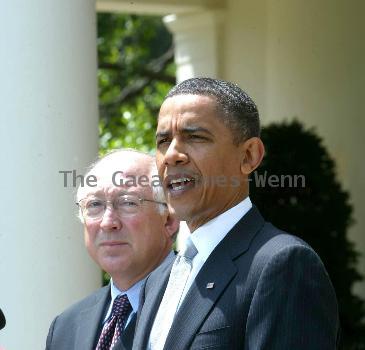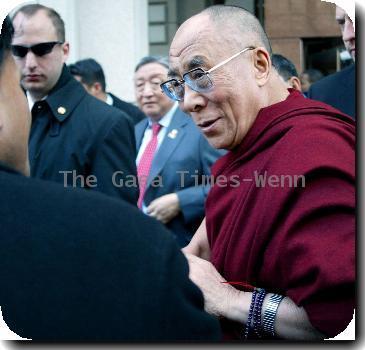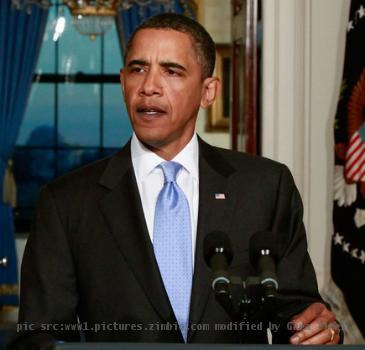Top US Republican senator says success in Kandahar will lead to success in war in Afghanistan
By Deb Riechmann, APMonday, July 5, 2010
McCain: Kandahar is key to victory in Afghan war
KABUL, Afghanistan — The ranking Republican on the U.S. Senate Armed Services Committee said NATO and Afghan troops will prevail in the war if they can succeed in securing and bolstering governance in the Taliban stronghold of Kandahar.
Sen. John McCain, who visited Afghanistan’s largest city in the south on Monday with two other U.S. lawmakers, warned of tough fighting ahead and predicted that casualties would rise in the short-term.
“The Taliban know that Kandahar is the key to success or failure,” McCain told a news conference at the airport in Kabul. “So what happens in this operation will have a great effect on the outcome of this conflict. But I am convinced we can succeed and will succeed, and Kandahar is obviously the key area. And if succeed there, we will succeed in the rest of this struggle.”
McCain, a Republican from Arizona, also reiterated his opposition to President Barack Obama’s plan to begin withdrawing troops from Afghanistan beginning in July 2011. Obama has said that large numbers of troops would not be pulled out if conditions did not allow, but that caveat has often gotten lost in the discussion over the length of U.S. commitment to the war.
McCain said he expected progress to be made in Afghanistan between now and July 2011. “But we must not tell the enemy that we will begin leaving when we have not finished the job,” he said.
During a two-day visit, McCain and Sen. Lindsey Graham, a Republican from South Carolina who is on the Armed Services Committee, and Sen. Joseph Lieberman, an Independent from Connecticut who is chairman of the Homeland Security and Governmental Affairs Committee, met with Gen. David Petraeus, the newly installed NATO commander, Afghan President Hamid Karzai and U.S. Ambassador to Afghanistan Karl Eikenberry.
Lieberman said he understood that Obama wanted to use the July 2011 timetable to send the message that the U.S. would not be in Afghanistan forever. Still, he said he thought the president was wrong to set it. “We hear it everywhere we go here. They say they think we’re leaving. We’re not going to leave until we win.”
McCain also said he expected Petraeus to refine the rules of engagement on the battlefield.
“Probably there will be some tweaking,” McCain said. “We get that impression from him.”
The rules were designed to limit civilian casualties and improve Afghan public support for coalition forces. The rules don’t prevent U.S. troops from calling in air support, but the emphasis is on caution, and some officers fear career damage if they mistakenly call for air or heavy weapons support and kill civilians in the process. Analysts say the rules have been interpreted and implemented unevenly across the country.
All three criticized New York Democratic Representative Nita Lowey, chairwoman of a key House panel that voted to defer consideration of nearly $4 billion in civilian aid — for reconstruction, redevelopment, health, education and counter-narcotics assistance — to Afghanistan pending investigations into allegations that Afghan officials are blocking corruption probes and foreign aid was being pocketed.
Putting nearly $4 billion in civilian aid in doubt is self-defeating because it’s impossible to defeat the Taliban until Afghanistan has more effective civilian institutions, Graham said.
“Congress needs to understand that statements like this at this point in time are ill-advised,” Graham said. “People are making a decision who to side with. … The money in question is just as important to the war effort in my view as additional troops.”
Lowey said the committee’s action had spurred increased scrutiny of funding by U.S. government officials and the Afghan government, including an investigation by an Afghan anti-corruption unit over billions of dollars of cash that has left the country. She said U.S. Attorney General Eric Holder’s recent trip to Afghanistan sent a strong message that rooting out corruption was critical.
“Given our serious responsibility to ensure that they (U.S. aid dollars) are spent properly and aimed at fostering a stable, secure society, the subcommittee will continue to investigate allegations of corruption involving our foreign assistance, determine what additional safeguards are needed … and press the Afghan government to aggressively investigate and prosecute corruption,” she said in a statement released earlier this week.
Afghan officials had pushed back against the subcommittee and Lowey, saying she was wrong to suggest that government officials in Kabul had misused or pocketed donor funds, accurately noting that contractors and foreign capitals hold the pursestrings for the vast majority of international aid in the country.
Meanwhile, NATO said five U.S. service members were killed Monday by roadside bombs — two in the west, two in the south and one in the east. No other details were immediately disclosed. Also Monday, a British soldier was killed in a blast during a vehicle patrol in southern Helmand province, the British Defense Ministry said. Their deaths brought to 14 the number of U.S. and other international troops killed so far this month.
June was the deadliest month of the war for U.S. and international forces, according to a tally by The Associated Press.
The AP count, based on announcements by the alliance and national commands, indicates that 103 international service members, including 60 Americans, died in June. The previous deadliest month for the multinational force was July 2009, when 75 troops were killed. For the U.S. contingent, the deadliest month was October 2009, when 59 service members were killed.
Roadside mines also are killing civilians. The Afghan Ministry of Interior reported Monday that six Afghan civilians, including a woman, died after their vehicle hit a roadside bomb Sunday in New Bahar district of Zabul province. Another civilian was killed and four others were wounded in a roadside bomb blast Sunday in Shinkay district of Zabul province, the ministry reported.
Tags: Afghanistan, As-afghanistan, Asia, Barack Obama, Bombings, Central Asia, Collateral Damage, Foreign Aid, Improvised Explosives, Kabul, Kandahar, North America, United States, War Casualties






